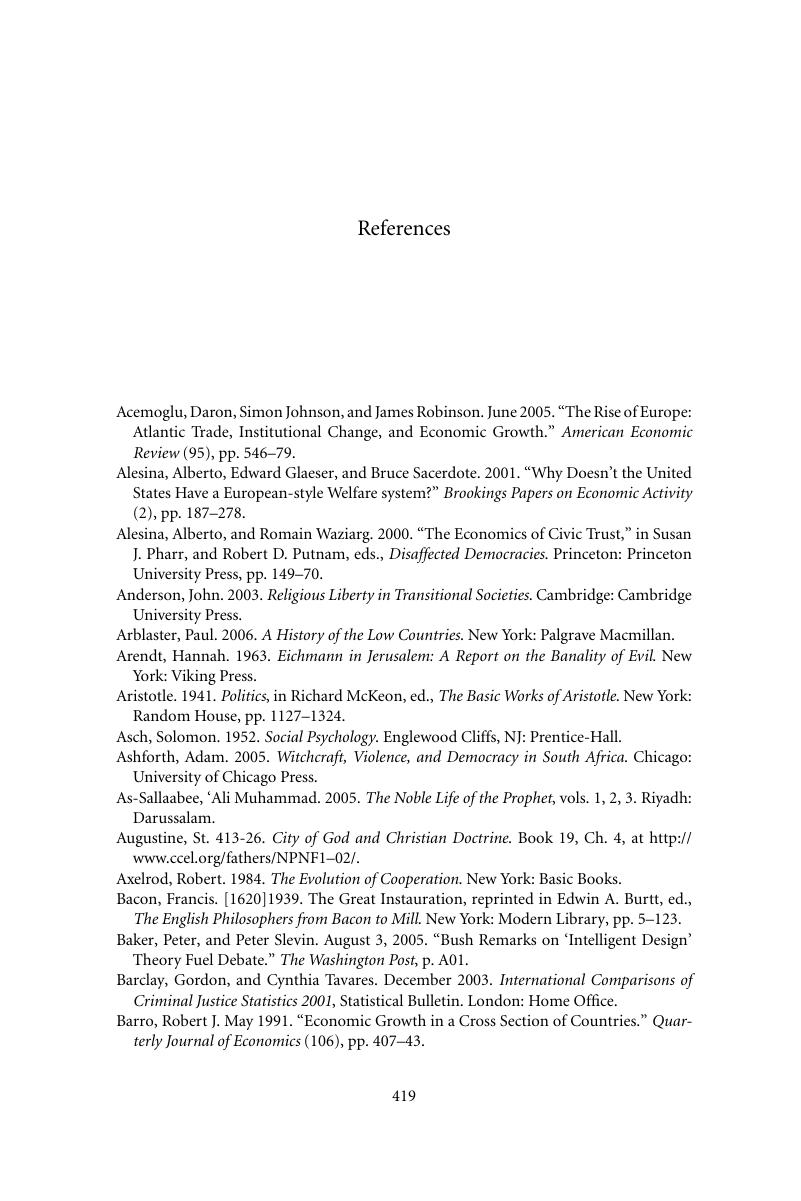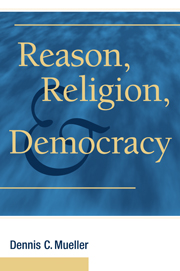Book contents
- Frontmatter
- Contents
- Preface
- 1 Liberal Democracy
- PART I FUNDAMENTALS: EVOLUTION, PSYCHOLOGY, REASONING, AND RELIGION
- PART II A HISTORICAL LOOK AT THE STATE, DEMOCRACY, AND RELIGION
- PART III THE INSTITUTIONS OF LIBERAL DEMOCRACY
- PART IV CHALLENGES TO LIBERAL DEMOCRACY
- References
- Author Index
- Subject Index
- References
References
Published online by Cambridge University Press: 05 June 2012
- Frontmatter
- Contents
- Preface
- 1 Liberal Democracy
- PART I FUNDAMENTALS: EVOLUTION, PSYCHOLOGY, REASONING, AND RELIGION
- PART II A HISTORICAL LOOK AT THE STATE, DEMOCRACY, AND RELIGION
- PART III THE INSTITUTIONS OF LIBERAL DEMOCRACY
- PART IV CHALLENGES TO LIBERAL DEMOCRACY
- References
- Author Index
- Subject Index
- References
Summary

- Type
- Chapter
- Information
- Reason, Religion, and Democracy , pp. 419 - 436Publisher: Cambridge University PressPrint publication year: 2009

